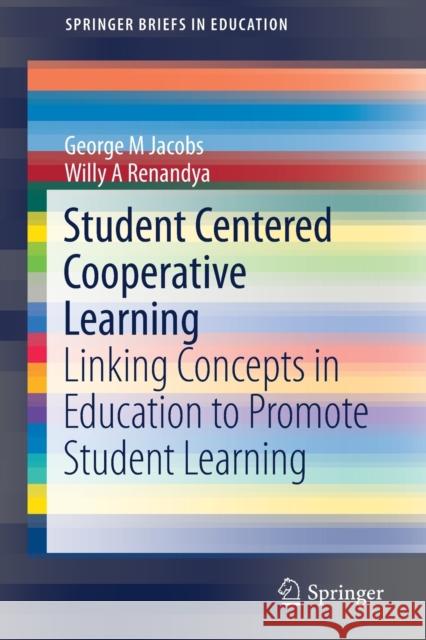Student Centered Cooperative Learning: Linking Concepts in Education to Promote Student Learning » książka
topmenu
Student Centered Cooperative Learning: Linking Concepts in Education to Promote Student Learning
ISBN-13: 9789811372124 / Angielski / Miękka / 2019 / 137 str.
Kategorie:
Kategorie BISAC:
Wydawca:
Springer
Seria wydawnicza:
Język:
Angielski
ISBN-13:
9789811372124
Rok wydania:
2019
Wydanie:
2019
Ilość stron:
137
Waga:
0.23 kg
Wymiary:
23.5 x 16.23 x 0.84
Oprawa:
Miękka
Wolumenów:
01
Dodatkowe informacje:
Wydanie ilustrowane











